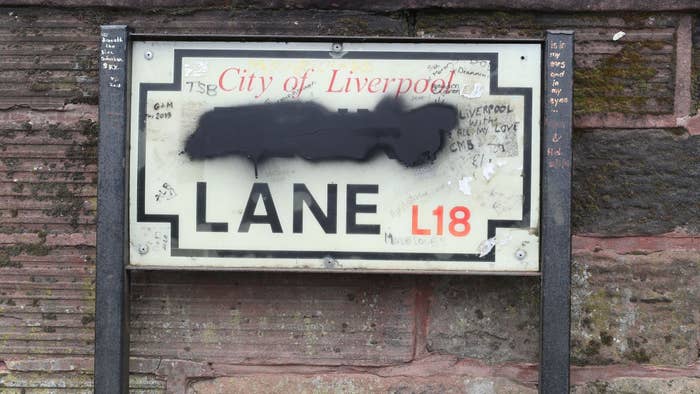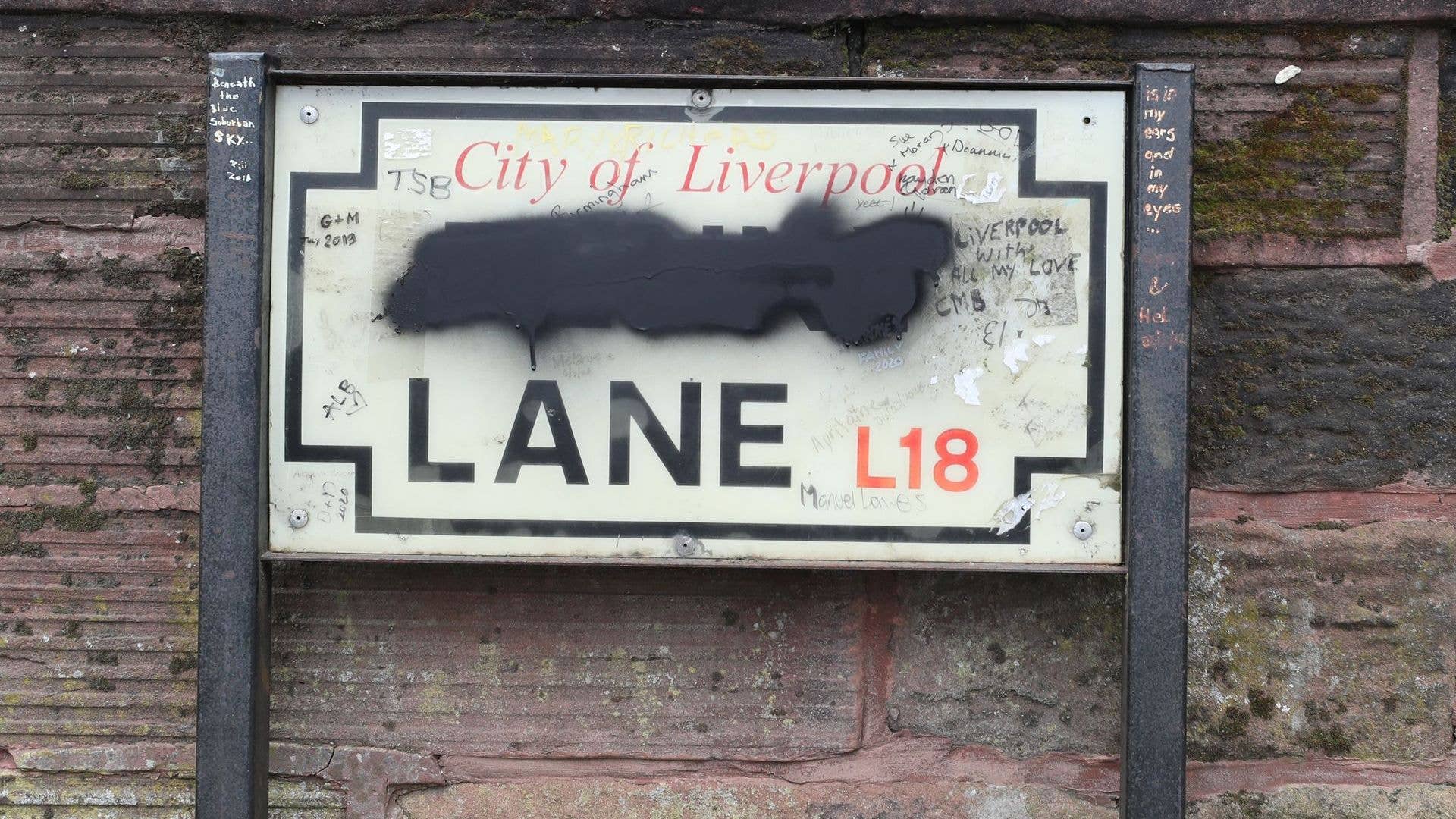
The road signs on Penny Lane in Liverpool have been defaced because of the street name's alleged connection to a slave merchant.
On Thursday night, someone sprayed painted over the word "Penny" on the road sign. The street name is most notably remembered from the song by The Beatles that shares its namesake. Liverpool's International Slavery Museum said it is uncertain whether the road name has any links to the 18th-century slave merchant James Penny, the reason the road sign was likely defaced.
Jackie Spencer, a city tour guide, said she was "livid" at the road sign being defaced.
"We've researched it and it has nothing to do with slavery," Spencer said. "James Penny was a slave trader, but he had nothing to do with the Penny Lane area."
Other members of the Liverpool community also voiced their displeasure at the defacing of the iconic road sign, claiming that there is no connection between its name and the slaver merchant. The Liverpool City Council has been getting criticized lately by historians, however, for not doing enough to recognize the links with slavery that the city has. Liverpool was one of the main ports used during the European slave trade in 1740, and many of the names of its streets do have links to slavery.
The defacing of Penny Lane is on the most recent piece of public property that has been defaced because of the general public's outrage at the lack of acknowledgment towards some of the slave roots that many of them have.
Back in the states, a statue Confederate President Jefferson Davis was taken down in Richmond, Virginia, on Wednesday night, and statues of Christopher Columbus have been getting taken down in several cities including Boston and Miami this past week.

